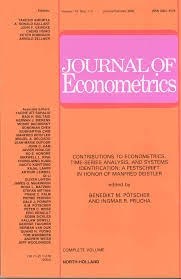
Miao, K., Su, L. and Wang, W. (2020). Panel threshold regressions with latent group structures Journal of Econometrics, 214(2):451--481.
-
Affiliated author
-
Publication year2020
-
JournalJournal of Econometrics
In this paper, we consider the least squares estimation of a panel structure threshold regression (PSTR) model where both the slope coefficients and threshold parameters may exhibit latent group structures. We study the asymptotic properties of the estimators of the latent group structure and the slope and threshold coefficients. We show that we can estimate the latent group structure correctly with probability approaching 1 and the estimators of the slope and threshold coefficients are asymptotically equivalent to the infeasible estimators that are obtained as if the true group structures were known. We study likelihood-ratio-based inferences on the group-specific threshold parameters under the shrinking-threshold-effect framework. We also propose two specification tests: one tests whether the threshold parameters are homogeneous across groups, and the other tests whether the threshold effects are present. When the number of latent groups is unknown, we propose a BIC-type information criterion to determine the number of groups in the data. Simulations demonstrate that our estimators and tests perform reasonably well in finite samples. We apply our model to revisit the relationship between capital market imperfection and the investment behavior of firms and to examine the impact of bank deregulation on income inequality. We document a large degree of heterogeneous effects in both applications that cannot be captured by conventional panel threshold regressions.